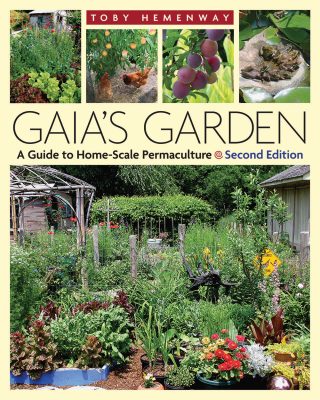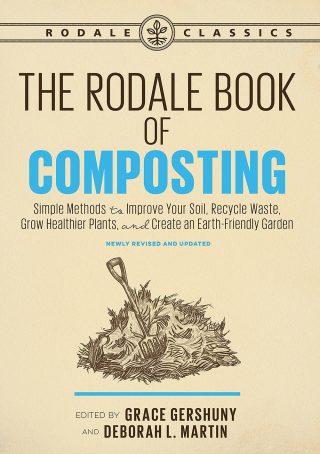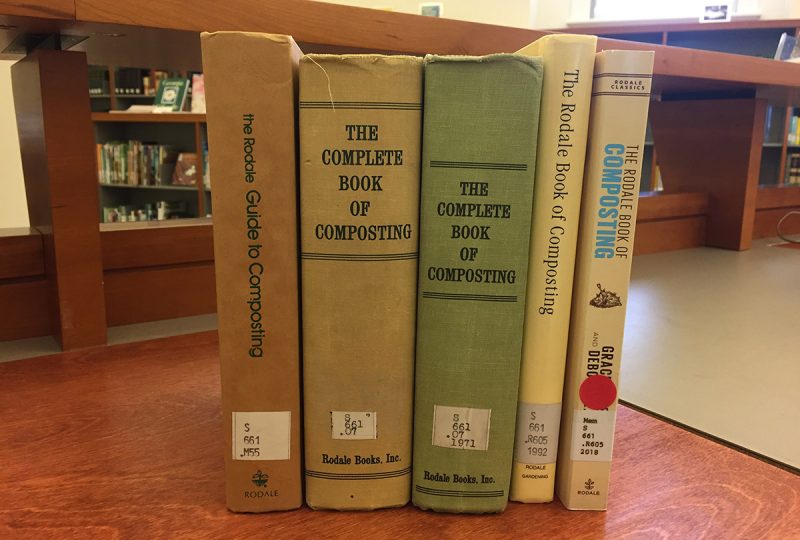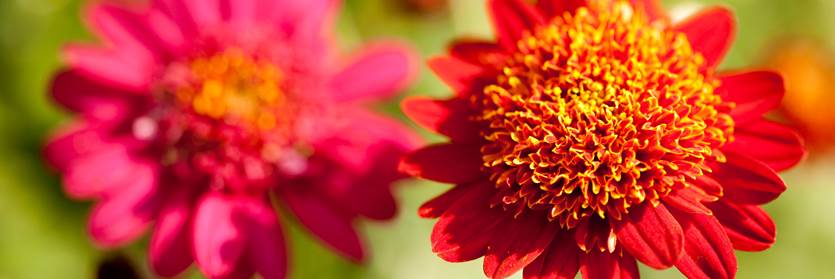Digging Deep into Permaculture
Posted in From the Library on August 9 2018, by Esther Jackson
Esther Jackson is the Public Services Librarian at NYBG’s LuEsther T. Mertz Library where she manages Reference and Circulation services and oversees the Plant Information Office. She spends much of her time assisting researchers, providing instruction related to library resources, and collaborating with NYBG staff on various projects related to Garden initiatives and events.
 Permaculture is a fascinating topic, but it can be difficult to know where to start looking for information when you are new to the concept and want to learn more. Defined on Wikipedia as “a system of agricultural and social design principles centered around simulating or directly utilizing the patterns and features observed in natural ecosystems,” permaculture has applications in landscape and ecological design, ecological engineering, environmental design, construction, and site maintenance. Two books new to the NYBG Mertz Library, Gaia’s Garden (2009) and The Rodale Book of Composting (2018), offer practical advice for home gardeners who would like to include more sustainable features in their landscapes.
Permaculture is a fascinating topic, but it can be difficult to know where to start looking for information when you are new to the concept and want to learn more. Defined on Wikipedia as “a system of agricultural and social design principles centered around simulating or directly utilizing the patterns and features observed in natural ecosystems,” permaculture has applications in landscape and ecological design, ecological engineering, environmental design, construction, and site maintenance. Two books new to the NYBG Mertz Library, Gaia’s Garden (2009) and The Rodale Book of Composting (2018), offer practical advice for home gardeners who would like to include more sustainable features in their landscapes.
Gaia’s Garden: A Guide to Home-Scale Permaculture (second edition, 2009) is a comprehensive introduction to permaculture principles and projects for the home gardener. Authored by Toby Hemenway, the work is centered on gardening practices in the Pacific Northwest but filled with concepts and projects that are appropriate for gardeners in any region. The ethos in Gaia’s Garden has carried through to many more contemporary gardening books, and this Nautilus Book Awards winner is still a relevant resource for those who are curious to learn more deeply about permaculture principles. One caveat related to the book’s age is that the plant lists should be examined critically before application—several of the recommended non-native species have been found to be problematic since the time of the book’s publication.
 Another book worthy of attention for the permaculture gardener is The Rodale Book of Composting: Simple Methods to Improve Your Soil, Recycle Waste, Grow Healthier Plants, and Create an Earth-Friendly Garden, edited by Grace Gershuny and Deborah L. Martin for the new Rodale Classics series. The date that this work was originally published (first as The Complete Book of Composting) is a bit murky; the 2018 version points to 1967 as the earliest edition, while the NYBG Mertz Library has a similar work from 1960. The exact date that this work was first published is not essential for the modern reader to know, but tracing the origins of the work and its subsequent changes over the past (at least) 58 years is an entertaining activity. Excerpts from the 1960 work remain unchanged in the 2018 revision, although editors throughout the years have curtailed the flowery nature of the 1960 prose, omitting its frequent biblical references and reprinting of the Walt Whitman poem This Compost. The NYBG Mertz Library holds at least five iterations of this Rodale work, including the 2018 volume. The newest version includes some additional information, while the structure of the work mirrors exactly that of the 1992 edition. New topics that are included are as follows:
Another book worthy of attention for the permaculture gardener is The Rodale Book of Composting: Simple Methods to Improve Your Soil, Recycle Waste, Grow Healthier Plants, and Create an Earth-Friendly Garden, edited by Grace Gershuny and Deborah L. Martin for the new Rodale Classics series. The date that this work was originally published (first as The Complete Book of Composting) is a bit murky; the 2018 version points to 1967 as the earliest edition, while the NYBG Mertz Library has a similar work from 1960. The exact date that this work was first published is not essential for the modern reader to know, but tracing the origins of the work and its subsequent changes over the past (at least) 58 years is an entertaining activity. Excerpts from the 1960 work remain unchanged in the 2018 revision, although editors throughout the years have curtailed the flowery nature of the 1960 prose, omitting its frequent biblical references and reprinting of the Walt Whitman poem This Compost. The NYBG Mertz Library holds at least five iterations of this Rodale work, including the 2018 volume. The newest version includes some additional information, while the structure of the work mirrors exactly that of the 1992 edition. New topics that are included are as follows:
- Historical composting projects by indigenous peoples
- The importance of fungi in compost
- Community composting programs
- Avoidance of soil disturbance
- Methods and technologies for farm-scale and municipal composting
- Updated regulatory considerations with the advent of the USDA’s National Organic Program
- An updated appendix
Stop by the library to check out 2018’s The Rodale Book of Composting, and for extra fun request 1960’s The Complete Book of Composting to compare the two and see what in the world of composting has changed, and what has remained the same.


